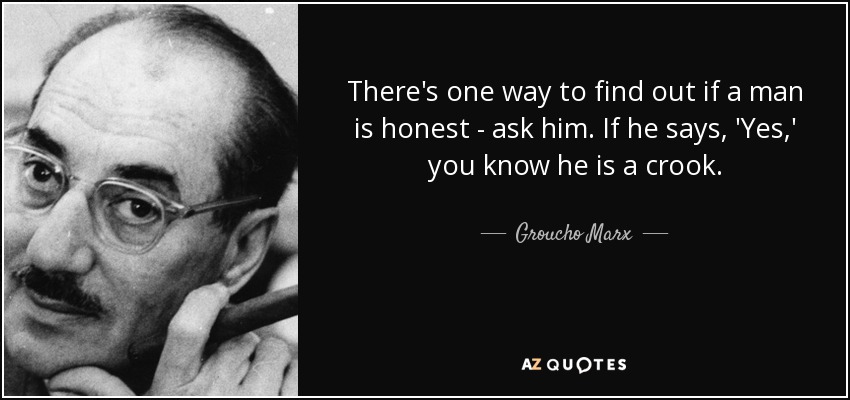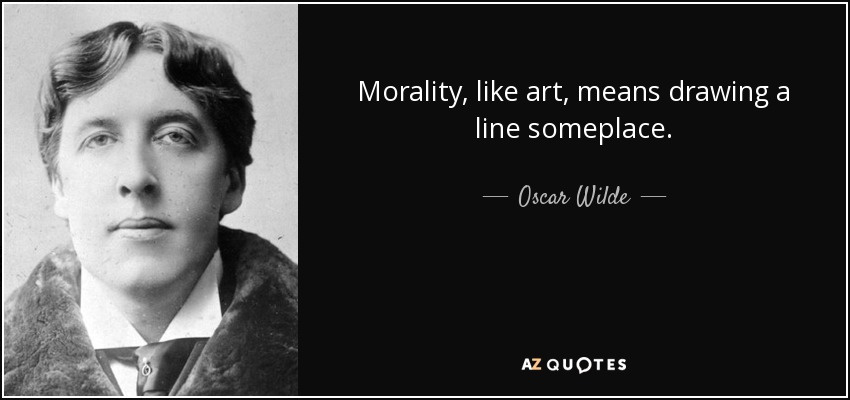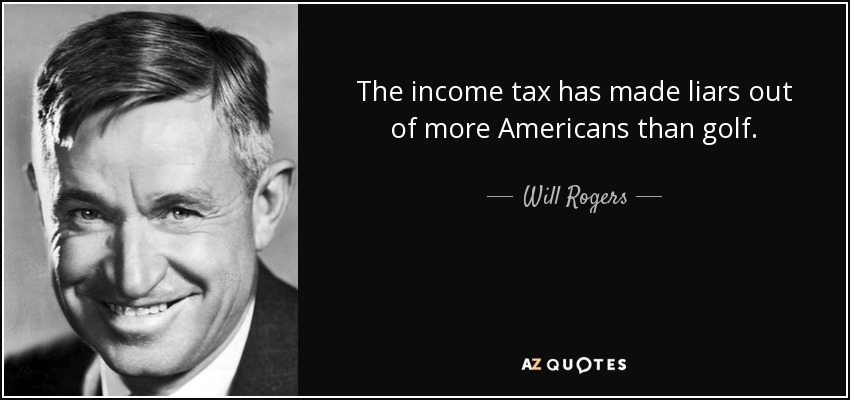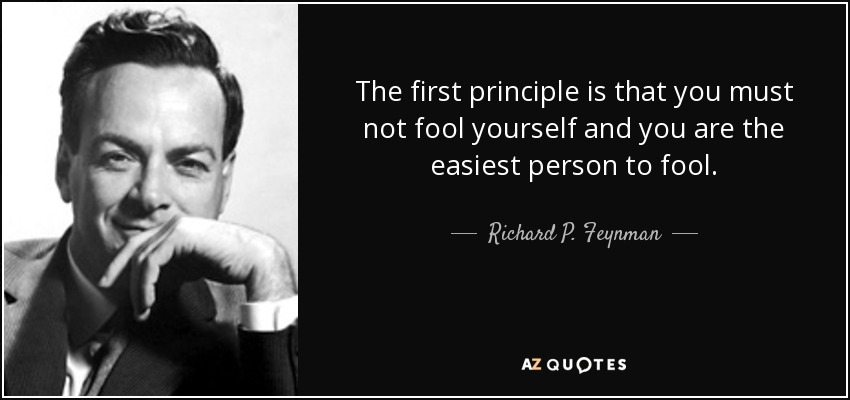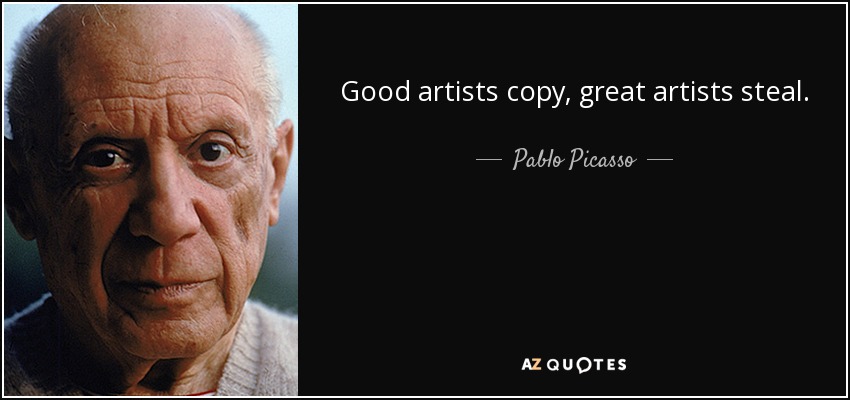Click here to return to Blog Post Intro
Why Is Dishonesty So Interesting?
The Simple Model of Rational Crime (SMORC)
According to the Simple Model of Rational Crime (SMORC), we all think and behave rationally. Like your average mugger, we all seek our own advantage as we make our way through the world. Whether we do this by robbing banks or writing books is inconsequential to our rational calculations of costs and benefits.
What if the SMORC’s rather simple view of dishonesty is inaccurate or incomplete? We need to first figure out what forces really cause people to cheat and then apply this improved understanding to curb dishonesty.
When a large amount of money goes missing, we usually think it’s the work of one coldhearted criminal. Instead, it is more often an outcome of many people who quietly justify taking a little bit of cash or a little bit of merchandise over and over.
Stand-up comedian Jeff Kreisler—author of a satirical book called Get Rich Cheating—was making a hard case for approaching financial decisions on a purely cost-benefit basis and paying no attention to moral considerations. Listening to Jeff, students realized that from a perfectly rational perspective, he was absolutely right. But at the same time, they could not help but feel disturbed and repulsed by his endorsement of cheating as the best path to success. Jeff’s approach to dishonesty comprised three basic elements: (1) the benefit that one stands to gain from the crime; (2) the probability of getting caught; and (3) the expected punishment if one is caught.
Dishonesty is most likely not an outcome of a cost-benefit analysis. Rather, we are moderated to the amount of cheating we feel comfortable with. Essentially, we cheat up to the level that allows us to retain our self-image as reasonably honest individuals.
In a nutshell, the central thesis is that our behavior is driven by two opposing motivations. On one hand, we want to view ourselves as honest, honorable people. We want to be able to look at ourselves in the mirror and feel good about ourselves (psychologists call this ego motivation). On the other hand, we want to benefit from cheating and get as much money as possible (this is the standard financial motivation).
This is where our amazing cognitive flexibility comes into play. Thanks to this human skill, as long as we cheat by only a little bit, we can benefit from cheating and still view ourselves as marvelous human beings.
Looking at Wilde’s quote, the question is: where is the line? In his 1889 novel, Jerome wrote in Three Men in a Boat (to Say Nothing of the Dog), in which he tells a story about one of the most famously lied-about topics on earth: fishing. “When I have caught forty fish, then I will tell people that I have caught fifty, and so on. But I will not lie any more than that, because it is sinful to lie.”
Fun with the Fudge Factor
Ariely explains that from his research over the years, the idea that worries him the most is that the more cashless our society becomes, the more our moral compass slips.
As a locksmith once said, locks are on doors only to keep honest people honest. “One percent of people will always be honest and never steal,” the locksmith said. “Another one percent will always be dishonest and always try to pick your lock and steal your television. And the rest will be honest as long as the conditions are right—but if they are tempted enough, they’ll be dishonest too. Locks won’t protect you from the thieves, who can get in your house if they really want to. They will only protect you from the mostly honest people who might be tempted to try your door if it had no lock.” It’s not that 98 percent of people are immoral or will cheat any time the opportunity arises; it’s more likely that most of us need little reminders to keep ourselves on the right path.
One very intriguing finding is that merely trying to recall moral standards is enough to improve moral behavior. Therefore, our willingness and tendency to cheat could be diminished if we are given reminders of ethical standards. People seem to want to be honest, which suggests that it might be wise to incorporate moral reminders into situations that tempt us to be dishonest.
When our ability to rationalize our actions is reduced, our fudge factor shrinks, making us less comfortable with misbehaving and cheating.
Golfers, like businesspeople, must choose for themselves what they are willing and not willing to do, since most of the time there is no one else to supervise or check their work. In fact, golf’s three underlying rules are, play the ball as it lies, play the course as you find it, and if you cannot do either, do what is fair.
Dishonesty in golf is directly influenced by the psychological distance from the action. Cheating becomes much simpler when there are more steps between us and the dishonest act. Therefore, if we pick up the ball and reposition it, there is no way we can ignore the purposefulness and intentionality of the act, and accordingly we cannot help but feel that we have done something unethical. When we kick the ball with our shoe, there is a little bit of distance from the act, but we are still the ones doing the kicking. But when the club is doing the tapping (and especially if we move the ball in a slightly haphazard and imprecise way) we can justify what we have done relatively easily.
The great golfer Arnold Palmer once said, “I have a tip that can take five strokes off anyone’s golf game. It’s called an eraser.” It seems that cheating in golf captures many of the nuances we discovered about cheating elsewhere. It also seems that golfers, like everyone else, have the ability to be dishonest but at the same time think of themselves as honest.
Blinded by Our Own Motivations
Results suggest that once someone (or some organization) does us a favor, we become partial to anything related to the giving party—and that the magnitude of this bias increases as the magnitude of the initial favor (in this case the amount of payment) increases.
Psychological studies show that we quickly and easily start believing whatever comes out of our own mouths, even when the original reason for expressing the opinion is no longer relevant.
Why We Blow It When We’re Tired
In a fascinating demonstration of the tension between reason and desire, Baba Shiv (a professor at Stanford University) and Sasha Fedorikhin (a professor at Indiana University) examined the idea that people fall into temptation more frequently when the part of their brain that is in charge of deliberative thinking is otherwise occupied.
They decided to tax their participants’ ability to think by piling on what psychologists call cognitive load. Simply put, they wanted to find out whether having a lot on one’s mind would leave less cognitive room for resisting temptation and make people more likely to succumb to it. The basic idea behind ego depletion is that resisting temptation takes considerable effort and energy. Think of your willpower as a muscle.
Each of the decisions we make to avoid temptation takes some degree of effort (like lifting a weight once), and we exhaust our willpower by using it over and over (like lifting a weight over and over). Ego depletion also helps explain why our evenings are particularly filled with failed attempts at self-control—after a long day of working hard to be good, we get tired of it all. And as night falls, we are particularly likely to succumb to our desires.
Generally speaking, if you wear down your willpower, you will have considerably more trouble regulating your desires, and that difficulty can wear down your honesty as well.
Experiments with depletion suggest that, in general, we would be well served to realize that we are continually tempted throughout the day and that our ability to fight this temptation weakens with time and accumulated resistance.
Why Wearing Fakes Makes Us Cheat More
Results suggest that wearing a genuine product does not increase our honesty (or at least not by much). But once we knowingly put on a counterfeit product, moral constraints loosen to some degree, making it easier for us to take further steps down the path of dishonesty. Counterfeit products not only tend to make us more dishonest; they cause us to view others as less than honest as well.
The first act of dishonesty might be particularly important in shaping the way a person looks at himself and his actions from that point on—and because of that, the first dishonest act is the most important one to prevent. That is why it is important to cut down on the number of seemingly innocuous singular acts of dishonesty.
We should focus on early signs of dishonest behaviors and do our best to cut them down in their budding stages before they reach full bloom. If we do, society might become more honest and less corrupt over time.
Cheating Ourselves
Self-deception is a useful strategy for believing the stories we tell, and if we are successful, it becomes less likely that we will flinch and accidentally signal that we’re anything other than what we pretend to be. In a variety of experiments, Ariely and his colleagues found that people cheat when they have a chance to do so, but not by a whole lot.
The frequency of stories about people lying on their résumés, diplomas, and personal histories brings up a few interesting questions: Could it be that when we lie publicly, the recorded lie acts as an achievement marker that “reminds” us of our false achievement and helps cement the fiction into the fabric of our lives? People tend to believe their own exaggerated stories.
We persist in deceiving ourselves in part to maintain a positive self-image. We gloss over our failures, highlight our successes (even when they’re not entirely our own), and love to blame other people and outside circumstances when our failures are undeniable. Positioning ourselves on the basis of our finer points can help us snag a date, finish a big project, or land a job.
When we and those around us are dishonest, we start suspecting everyone, and without trust our lives become more difficult in almost every way.
Creativity and Dishonesty
Someone once said, “We Are All Storytellers. Facts are for people who lack the imagination to create their own truth.”
Sometimes (perhaps often) we don’t make choices based on our explicit preferences. Instead, we have a gut feeling about what we want, and we go through a process of mental gymnastics, applying all kinds of justifications to manipulate the criteria. That way, we can get what we really want, but at the same time keep up the appearance—to ourselves and to others—that we are acting in accordance with our rational and well-reasoned preferences.
Put simply, the link between creativity and dishonesty seems related to the ability to tell ourselves stories about how we are doing the right thing, even when we are not. The more creative we are, the more we are able to come up with good stories that help us justify our selfish interests.
Individuals who were more creative exhibit higher levels of dishonesty. Intelligence, however, is not correlated with dishonesty. In terms of dishonesty, this suggest that once something or someone irritates us, it becomes easier for us to justify our immoral behavior. Our dishonesty becomes retribution, a compensatory act against whatever got our goat in the first place. We tell ourselves that we’re not doing anything wrong, we are only getting even.
We have an incredible ability to distance ourselves in all kinds of ways from the knowledge that we are breaking the rules, especially when our actions are a few steps removed from causing direct harm to someone else.
Even Steve Jobs occasionally boasted that much like Picasso, Apple was shameless about stealing great ideas.
If the key to our dishonesty is our ability to think of ourselves as honest and moral people while at the same time benefiting from cheating, creativity can help us tell better stories—stories that allow us to be even more dishonest but still think of ourselves as wonderfully honest people.
Where does this leave us? Obviously, we should keep hiring creative people, we should still aspire to be creative ourselves, and we should continue to encourage creativity in others. But we also need to understand the links between creativity and dishonesty and try to restrict the cases in which creative people might be tempted to use their skills to find new ways to misbehave.
Resetting rituals—ranging from the Catholic confession to Yom Kippur and Ramadan to the weekly Sabbath—all present us with opportunities to collect ourselves, stop the deterioration, and turn a new page. You could also point to rituals like New Year’s resolutions, birthdays, changes of job, and romantic breakups as “resetting” opportunities.
Dan Ariely says, “The good news in all of this is that we are not helpless in the face of our human foibles (dishonesty included). Once we better understand what really causes our less-than-optimal behavior, we can start to discover ways to control our behavior and improve our outcomes. That is the real goal of social science, and I am sure that the journey will only become more important and interesting in the years to come. Irrationally yours, Dan Ariely.”
Bonus Content: Some Reflections on Religion and (Dis)honesty
Religion has a lot to say about our struggle with a range of human problems, including honesty and morality. Sometimes, complete honesty puts domestic peace at risk.
We might need to prioritize familial harmony over complete disclosure from time to time (which is an amazing rationalization, if you ever need one). In Judaism, the teaching is that peace at home can sometimes trump full honesty.
Another Look at the Ten Commandments: Keeping Institutions Honest
When Ariely looked more closely at the ninth commandment (Exodus 20:16), he noted that it states people shall not bear false witness. He thought it referred to lying, but it is not. In fact, it is about perjury. Perjury?
Most of us would not include giving false testimony in our list of top ten prohibitions. Nevertheless, a prohibition on perjury made it into the Ten Commandments because false testimony can have a devastating effect on the innocent. People could be punished and even killed because of a false witness
Lying in court is grievously problematic on a number of levels.
- Lying in court is a public act.
- Lying in court interferes with good governance. Disabling institutions may not have the same shock value as committing violent crimes, but it does erode the trust we all have—and need to have—in our public institutions.
A priest once advised Ariely that if he kept only one commandment, he should observe Shabbat (or Sabbath). “If you keep Shabbat as a day of rest and reflection, the rest of the commandments will most likely follow,” he said. Apparently he had come to hold the same general idea as social scientists about the way our moral muscles and ego depletion work—and about the importance of rest and resetting our moral energy
Sabbath affects those who observe it in a few ways.
- It offers an opportunity to stop and reflect.
- It propels people to observe the other commandments by restoring our moral energy.
- It boons our morality by providing rules for self-control.
Decisions make life more complex and difficult. The more of them we have to make, the weaker our self-control becomes. What can relieve people from making decisions? Rules. Sabbath isn’t just about relaxing. It’s also about keeping a list of rules and restrictions—things that make the day different from all others. Rules offer relief, because somebody else (in this case, God) is doing the driving, and you can doze off in the passenger seat.
Habitual Sabbath observers aren’t expending any moral energy deciding what to do during the Sabbath or whether to break the Sabbath rules.
When we have to make lots of decisions with no rules to guide us, nothing is automatic and we have to invest some energy in every one of those decisions. All of those decisions sap our moral energy, making us more likely to yield to temptation.
If rules link us to other people (we are all doing this together), to some other larger purpose (this is what good people do), or to a deep belief (God’s commandments), breaking the rule is more difficult and less likely to happen.
What’s the point of drawing connections between Bible stories and research on honesty? There are many advantages, but from the perspective of decreasing dishonesty, what we need are specific and precise rules that are ideally connected to a higher meaning.
The general approach of religion is to deal directly with the period before we cheat and the period in which we have the opportunity to cheat. First, religion attempts to influence our mind-set before we are tempted, by creating moral education and—let’s not forget—guilt. Second, religions attempt to influence our mind-sets in the moment of temptation by incorporating different moral reminders into our environment.
The good news is that we all have a moral compass. The bad news is that we can’t just assume that our consciences will effortlessly and continuously protect us. As a society, we need to figure out how to instill a moral compass in our kids and how to maintain our own.
Then, we will keep the Ninth Commandment, as we shoot for the stars!

